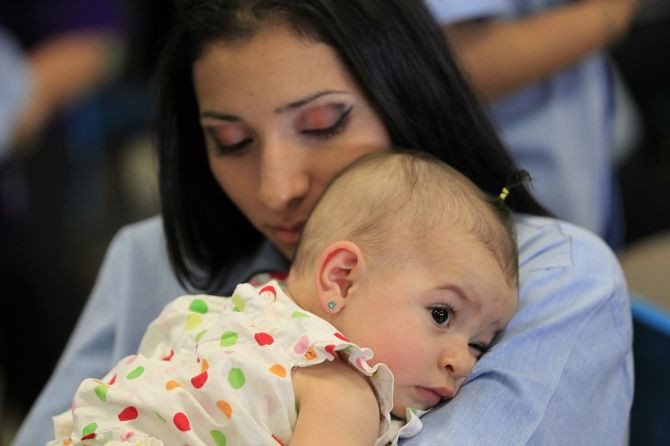Motherhood May Rewire Effects of Cocaine on the Brain

It is said quite frequently that motherhood changes a woman. Now, researchers have found that old adage may be true even when it comes to addiction.
Researchers at the University of Michigan have found that cocaine may affect mothers differently than it does other women. Their findings may possibly lead to better, more effective treatment for addiction.
Jennifer Cummings, a researcher at the University of Michigan's Molecular and Biological Research Institute, spoke about the team's findings at a meeting for the Society of Neuroscience. They conducted experiments on two different sets of rats. One group of rats had given birth to and reared pups, while the other set of rats had not.
The experiment exposed both sets of rat to a stressful situation. Afterwards, researchers allowed the rats to receive cocaine if they poked the dispenser with their noses either three or 70 times.
If the rats needed to poke the dispenser only three times, the mothers generally partook of much more cocaine. But if the rats needed to poke the dispenser 70 times, mothers became much less likely to seek doses of the drug.
At the same time, researchers used a technique called microdialysis to measure the animals' dopamine response, especially in the nucleus accumbens region of the brain. Generally, cocaine increases dopamine, a chemical that is associated with reward. Researchers found that mothers' dopamine levels in response to receiving doses of cocaine were much lower than they were for non-mothers.
"Even though there was reduced dopamine release in the nucleus accumbens of rats that had been mothers, many of their behavioral responses to cocaine were the same or greater than non-mothers, indicating that there are downstream long term changes to the brains of the rats that had been mothers," Jill Becker, who also worked on the project, said.
The research adds complexity to the idea of how to treat people facing substance abuse problems. As women make up a larger share of drug users, researchers are seeking to find a better understanding of the problem and gender-specific treatments.
Previous research has found that motherhood boosts memory and spatial navigating.
Researchers will look in upcoming studies at rats that gave birth but did not raise their pups, comparing them with rats that did not give birth but reared pups. Only then, they believe, will they be able to find the source of the brain change.
Published by Medicaldaily.com



























